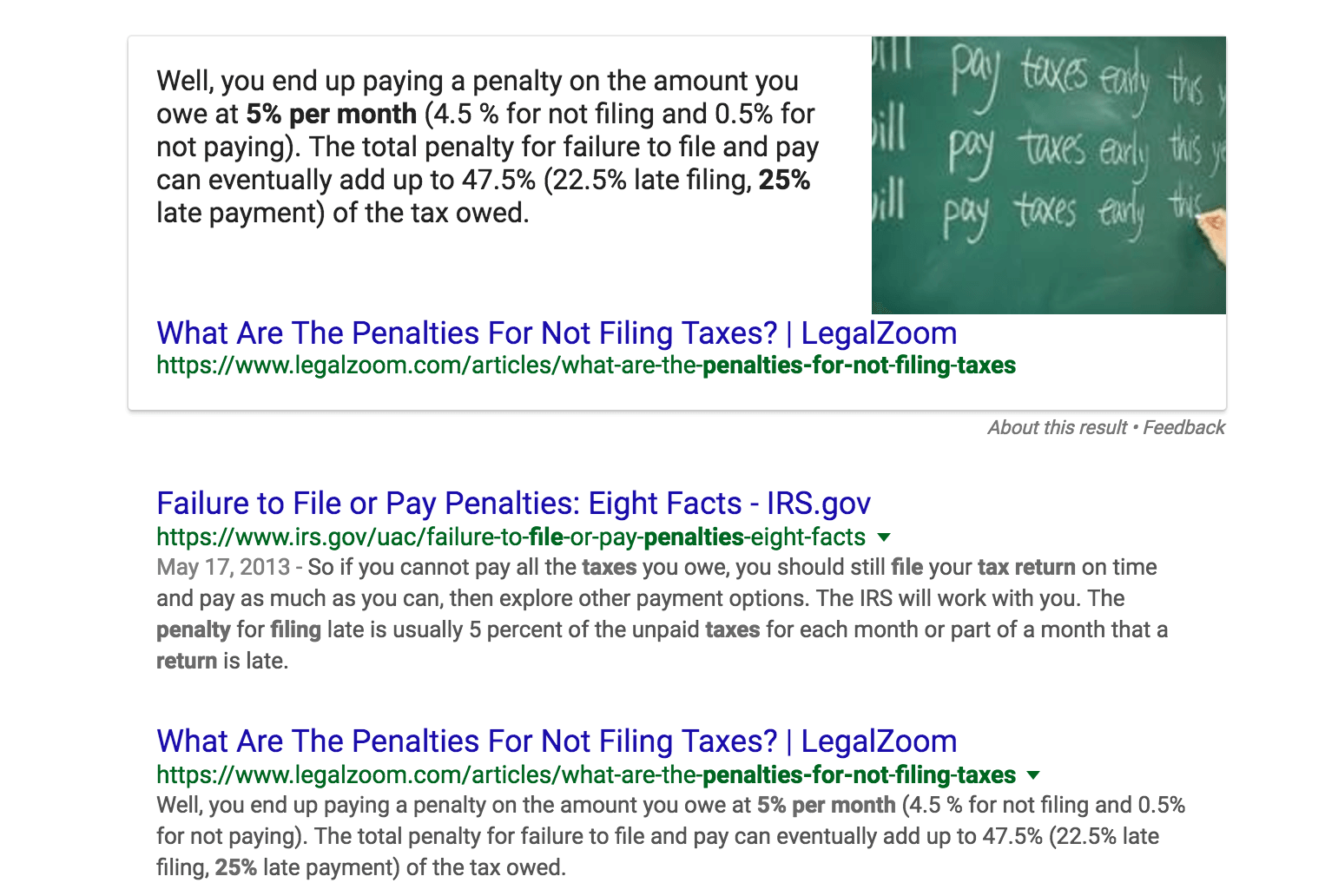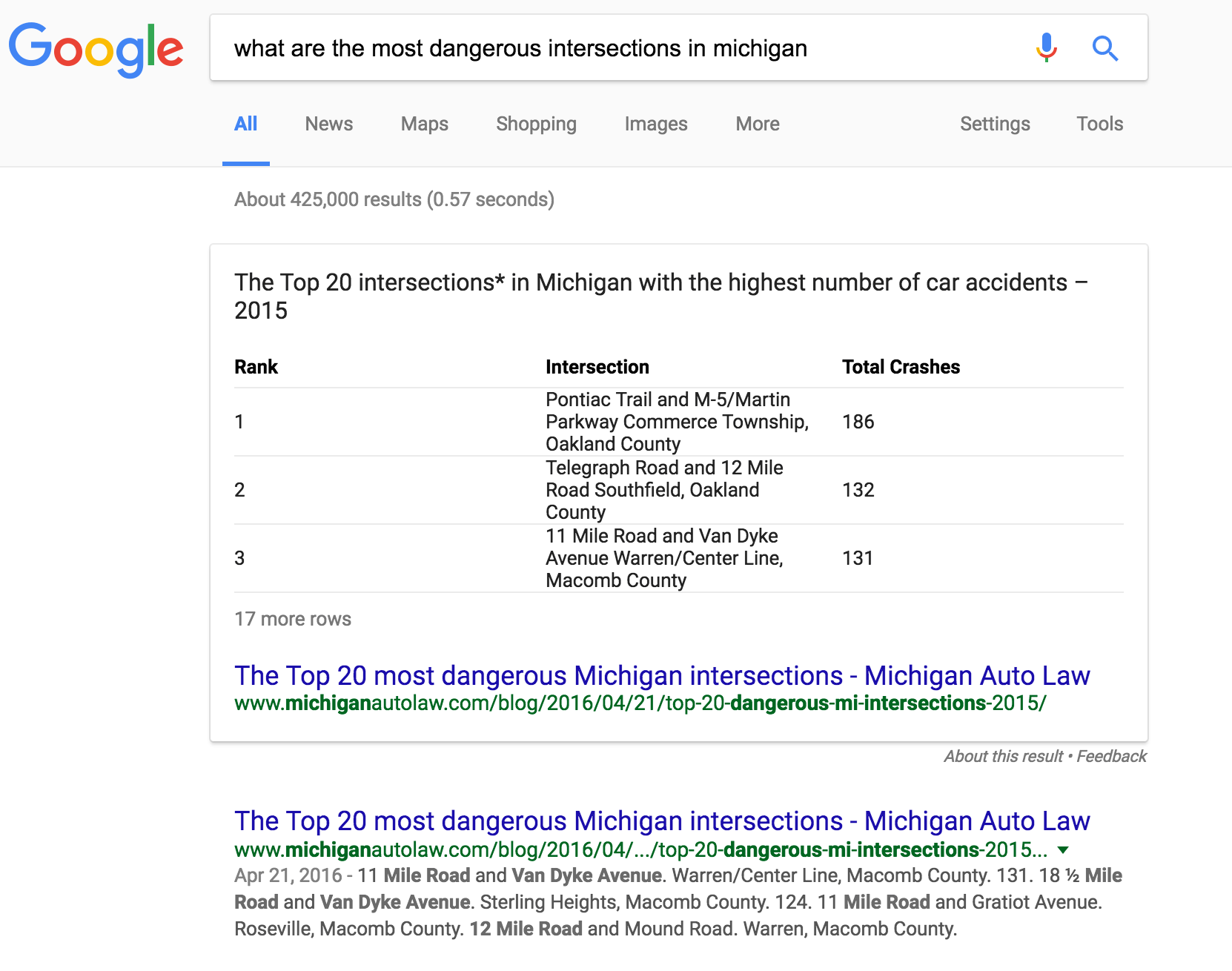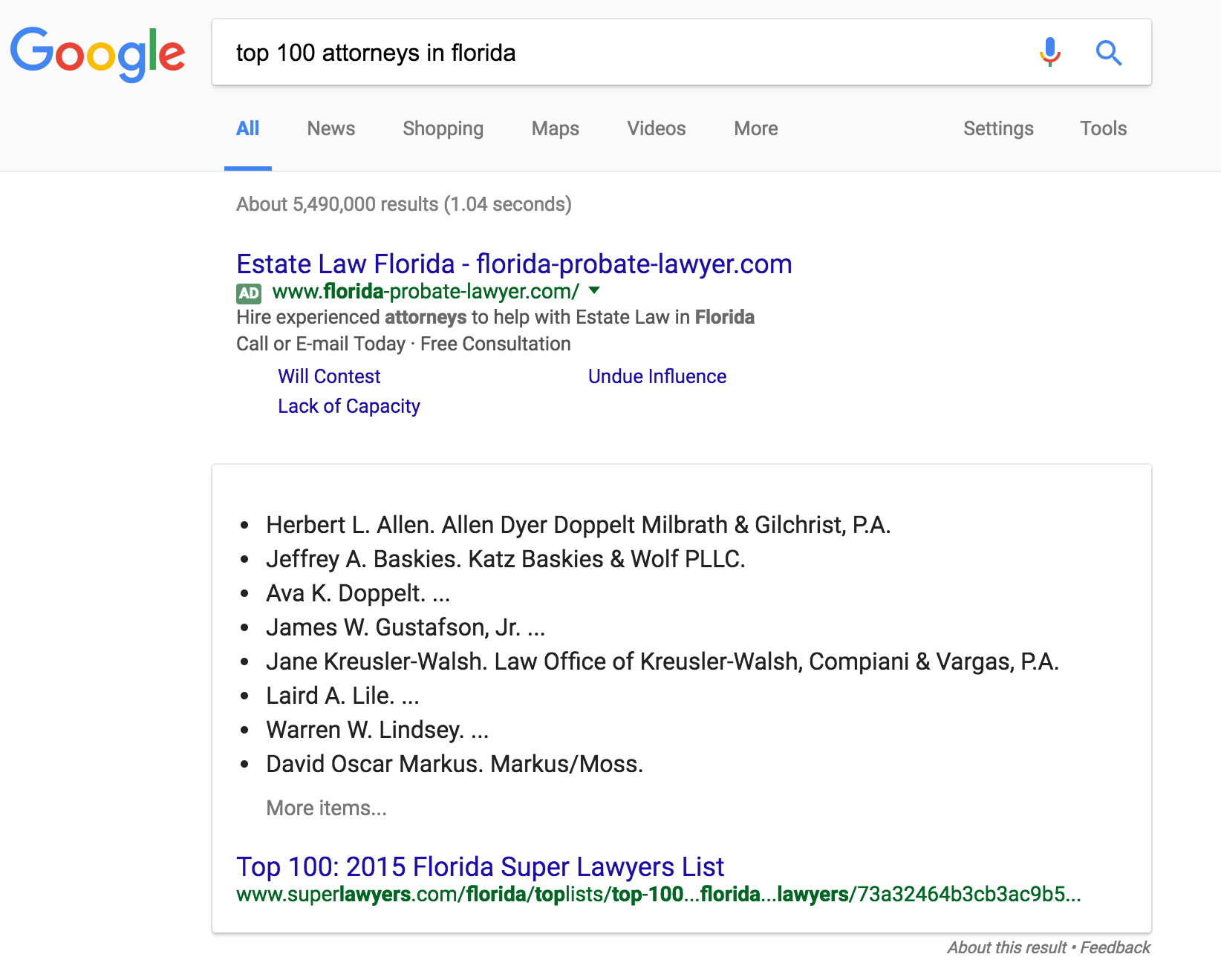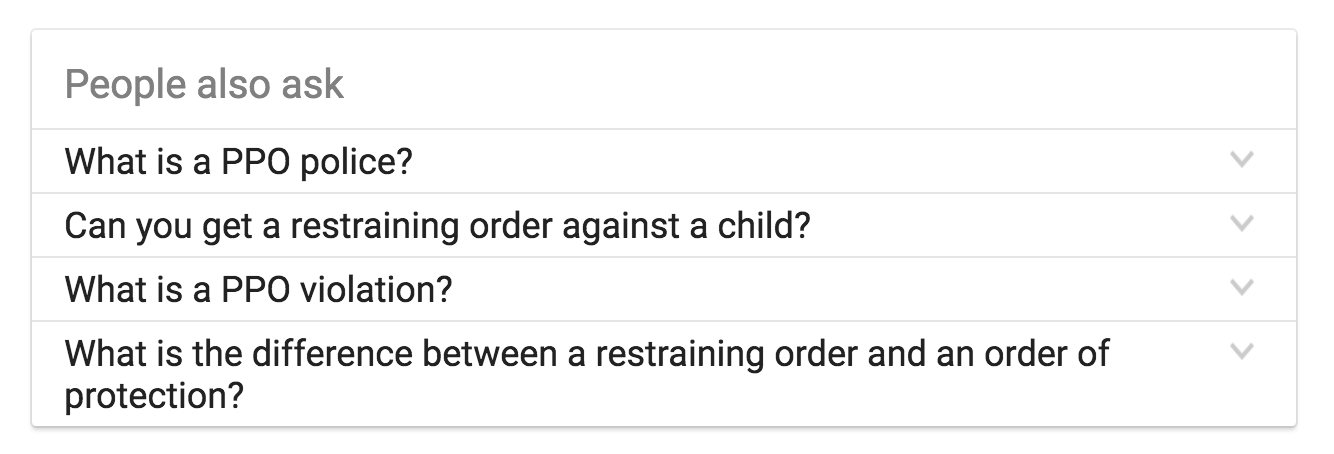Google's leaders want to deliver more than just ten blue links. When they can, they want to deliver answers. One way they deliver these answers is through featured snippets. Here are some ways lawyers should think about earning featured snippets.
I recently had the opportunity to listen to some very bright minds in digital marketing at State of Search. You can download all of the presentations here.
While many themes emerged from the conference, I would like to share one that I believe will play a particularly role in how will lawyers earn meaningful attention from search engine users as we move into this age of answers: Featured Snippets
STAT has been putting out some great research on featured snippets. STAT CEO, Rob Bucci (@statrob) presented some of their findings at State of Search:
What are featured snippets?
According to Google:
When a user asks a question in Google Search, we might show a search result in a special featured snippet block at the top of the search results page. This featured snippet block includes a summary of the answer, extracted from a webpage, plus a link to the page, the page title and URL.
STAT has identified three types of featured snippets:
Here is an example of each in the context of a legal search:
Paragraph Snippet:


Table Snippet:

List Snippet:

How can I generate featured snippets for my law firm?
Google programmatically extracts snippets. That means that you can't tell Google how, what, and when to serve a snippet from your pages. When Google sees a searcher ask a question, they look for pages that contain an answer. They then display the answer at the top of the page as a featured snippet.
While Google decides when and from where to serve featured snippets, STAT has observed that there are some things we can do to help nudge Google to serve featured snippets from our pages.
First, the format of your pages' content seems to determine the type of featured snippet that will be generated. For example, if your page content contains a table, if Google decides to show a featured snippet, it will likely be a table snippet. Therefore, where appropriate, be sure to include data in table format on your pages.
Second, build content based on Google's people also ask feature. Here's an example of a people also ask listing:

Third, opinion content (i.e. reviews) can generate snippets. This is a no-brainer for professional service providers like lawyers.
Fourth, find featured snippets in your target query space and format your pages' content to match.
Finally, it's also worth noting that STAT found that featured snippets never occur with local packs. Therefore, don't target queries for featured snippets for which Google serves local pack results, it's likely to be a waste of your time.
Some publishers have expressed frustration with Google's use of featured snippets with concerns that search journeys are more likely to terminate in Google (instead of clicking-through to the publisher's site). I'm not sure that the data is likely to support this concern in the legal SERPs.
To me, it's more likely that a search user will click-through to learn more about the subject of their query. Further, having your content listed as a featured snippet is like receiving an endorsement from Google that this is the listing that contains the best answer.
Have you noticed your pages in featured snippets? Feel free to share examples in the comments below. Have questions about earning featured snippets? Don't hesitate to ask.

Over the years, law firm prospects have sent us reports from just about all of our competitors. Unfortunately, even today, some law firm marketing agencies still mislead their clients via "reporting." One particularly egregious example comes in the form of ranking reports. Which prompted this LinkedIn post. To my surprise, I received a lot of […]
John Wanamaker supposedly said "Half the money I spend on advertising is wasted; the trouble is I don't know which half." In an an effort to figure out "what half is working," attribution was born. Coupled with a transition from traditional, offline ads to digital media, attribution became the holy grail for analyzing advertising spends. But […]
I recently asked ChatGPT, "What are some of the top personal injury law firms in Chicago?? Actually, first I ask "who are some of the top personal injury lawyers in Chicago?" ChatGPT couldn't handle that one, so I modified the prompt. ChatGPT listed five very well-known firms downtown. Can you guess the other four? That's […]
If you're like me, you have some degree of AI, ChatGBT, Bard, exhaustion. Now don't get me wrong, this is stuff is remarkable and is changing, well, a lot. But before you hook up the ChatGPT API to your WordPress API and crank out 10,000 pages, here are a few things to think about. Let's […]
If you know me, you know my opinions about links and SEO advice from Google. If you don't, here's the TL;DR: Meh, links! Meaning, all things being equal, links still remain a competitive difference maker for ranking. Take Google's SEO advice with several grains of salt. Google has no economic incentive to help your site […]
The best marketing advice I can give you is to be authentic. Of course, you don't find that very helpful in terms of meeting your growth goals. So, you might decide to game the system. As I'm writing this, one of the more popular ways to gain the system is to pay for engagement. This […]
The following post was written by ChatGPT. ChatGPT, developed by OpenAI, is a state-of-the-art language model that can generate human-like text based on a given prompt or context. This technology has the potential to revolutionize the way that businesses, including law firms, market themselves to potential clients. One way that a law firm could use […]
How long does SEO take? When can I expect to see results? What results should I expect to see? These are all reasonable questions that we field from lawyers every day. And, like many legal answers, the answer is: It depends. Yes, I know that's not the answer you wanted. But it's the most honest […]
And how much time should they spend doing it? I recently had the privilege of chatting with Tyson, Jim, and Conrad for an upcoming episode of The Maximum Lawyer Podcast. If you're not familiar with The Maximum Lawyer community, you should definitely check it out. Jim asked a really great question about who should do […]